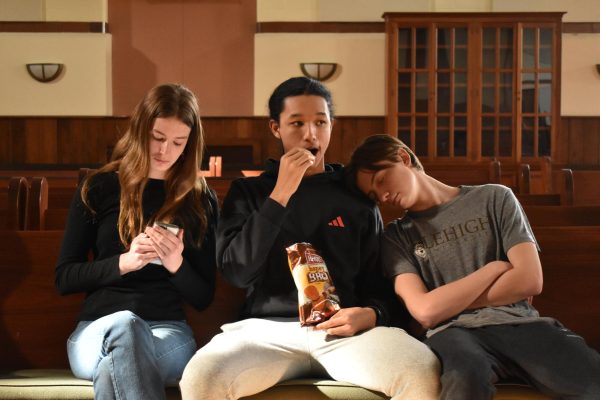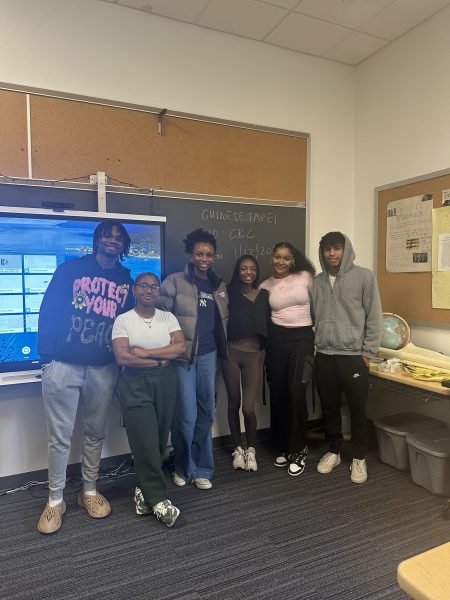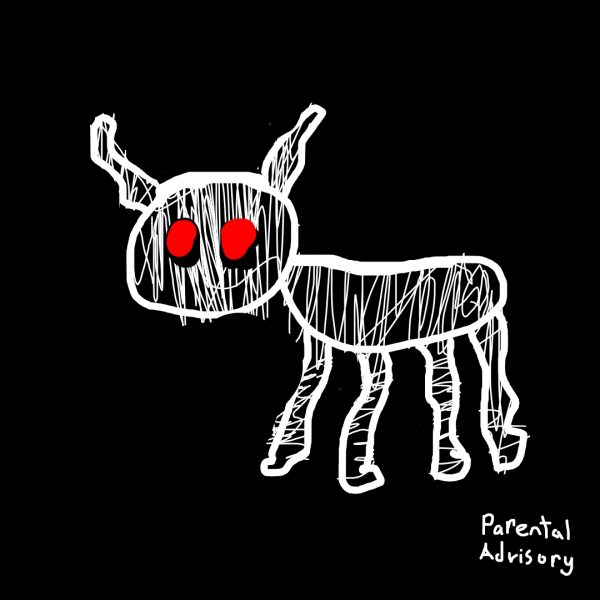On Wetsuit-ed Summers, Bovinophobia, and Childhood Individuality
March 2014
As a senior, I’m kind of obligated to reflect on my time at Wilmington Friends, to nostalgically look through old yearbooks, to think about how much I’ve grown and changed since I joined the class of 2014 in second grade. It’s entertaining to compare my fourth grade shy stage or my seventh grade attempt at being rebellious or my freshman year naivety to my current personality and perspective. Although digging up photo evidence of sixth grade reminds us of how far we’ve come, I think it’s just as important to remember that in many ways, we haven’t changed at all. There’s no denying that high school experiences affect the way we see the world and expand our understanding of it; however, when I think about the fact that the vibrant mixture of personalities and perspectives in the WFS student body takes many of the same classes, learns from the same teachers, and even eats the same cafeteria lunches, it’s clear that our uniqueness comes from a foundation of individuality laid down long before high school. As I look back on my Wilmington Friends School career, I realize that most of the defining aspects of my personality are traits I’ve had for as long as I can remember.
Some of the lasting aspects of my identity have a logical origin in a memory or a specific event. When I think of all the random quirks from my childhood that created a lasting impact, I don’t think of my father dropping me from his shoulders or of missing my front teeth for four years (although I’m sure those events play out in my character some how); I think of wetsuits.
As a toddler living in Australia, I didn’t know the long-term damage that wearing a wetsuit would cause. I didn’t realize that, in her effort to protect my skin from the sun radiating through a hole in the ozone layer, my mother had inadvertently doomed me to a lifetime of extreme susceptibility to sunburn (as demonstrated by the freshman year incident when my feet turned green after a sunburn) as well as a general dislike for beaches and pools, probably stemming from a series of lonely, wetsuit-clad summers at the pool once we returned to the US. My Irish-English-Polish heritage might also be a factor, but I think the sunless wetsuit years of my childhood are the main reason I require an umbrella and SPF 70 to feel safe at the beach, which I generally avoid if possible.
The wetsuit years and my resulting sun sensitivity and beach-induced self-consciousness exemplify the kind of cause-and-effect relationship between a childhood experience or memory and the result: a characteristic or belief that we carry throughout our lives. It makes sense that the early events of our lives make a lasting impact. Jack Kempner ’14, for example, slipped on his kitchen floor when he was two while running in socks and split his chin open. The result? “Now I don’t run in socks.” Similarly, Jamie Martelli-Raben ’14 traces his competitive drive back to early exposure to competition through the intensity of family games and peewee soccer.
While some aspects of our personality make sense or are based on a logical origin, other characteristics have absolutely no rationale but remain key in our characters throughout our lives. My early psychological fear of cows, for example, makes absolutely no sense. Although cows only make me mildly uncomfortable now, I suffered from severe bovinophobia as a toddler, convinced that “The Cows” were looming in the darkness of my bedroom at night. Other traits play a more prominent role in my personality, like my talkativeness. My dad continuously recalls the time when a two-year-old Ellie casually addressed an orangutan at the Singapore Zoo to say, “So, what’s your name?” I have since learned that zoo animals don’t usually respond to questions, but that outgoing tendency remains a part of my personality.
Other members of the WFS community identified their own lasting characteristics that had no definite origin. Caroline Grover ’14, who views herself as a calm, sedentary creature, can trace those qualities back to infancy, “I pretty much just sat on the floor and didn’t move or make any noise, so much that my mother took me to the doctor to see if something was wrong with me.” Gray Flanagan ’14 also identified a lifelong characteristic. “I’ve always been outspoken. I don’t really have a filter.” For Flanagan, this trait began to develop soon after he learned how to talk. He recalled, “When I was in preschool, I screamed at the audience during our Christmas pageant for laughing at our dance.” For some, childhood characteristics formed lasting dreams and goals. Upper School Chinese teacher Xiaohong Xu remembers how her imaginative and creative personality sparked her lasting dreams for her future. “When I was a little girl, I wanted to be a teacher. I set up desks and chairs in the backyard of my home in Shanghai, writing Chinese characters on the wall, starting to teach a Chinese class to no one!” Personally, my dream careers ranged from veterinarian to writer to “farmer-ballerina,” but I guess that’s just a reflection of my characteristic spontaneity. For all of us though, our early childhood characteristics seem to continue to shape our paths today.
As my high school career comes to a close, and I look towards the next phase of my life, it’s comforting to know that a piece of that wetsuit-sporting toddler who converses with apes will always be a part of who I am.
Ellie McGinnis has been a part of The Whittier Miscellany staff for four years and currently serves as the publication’s Copy Editor. This is her first year as an independent columnist. She made a cameo-appearance on a 1999 episode of Sesame Street.





































